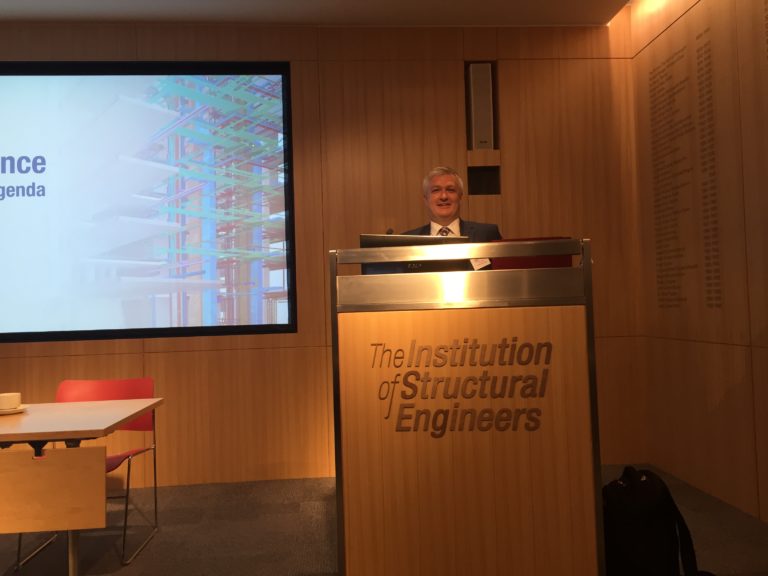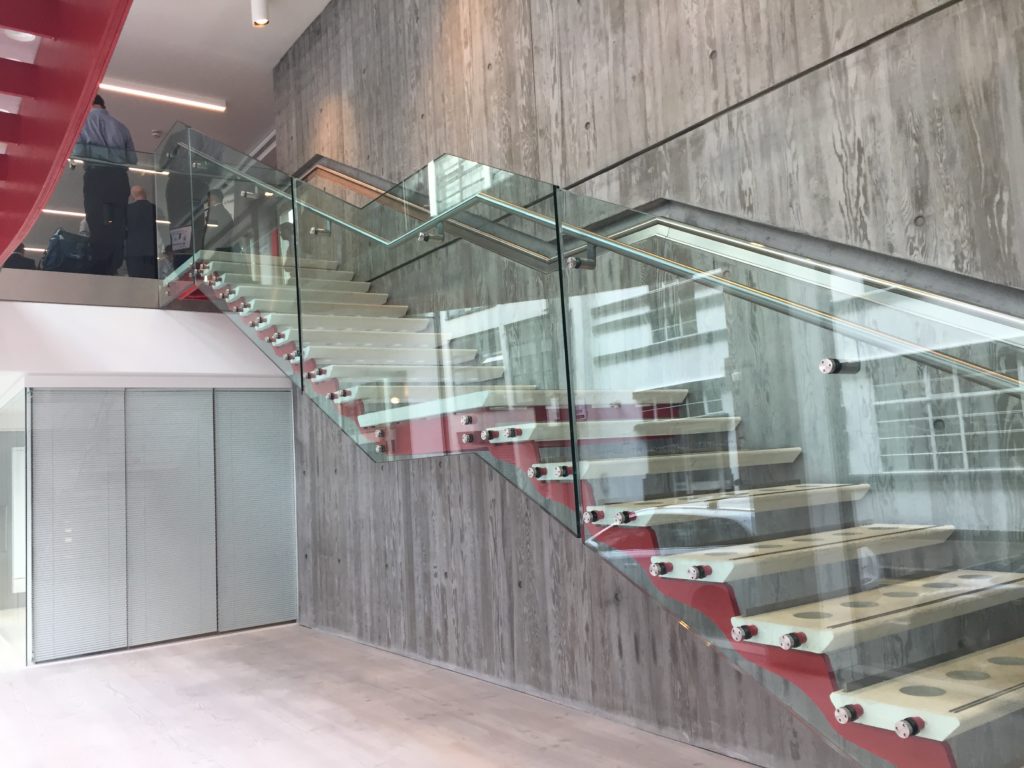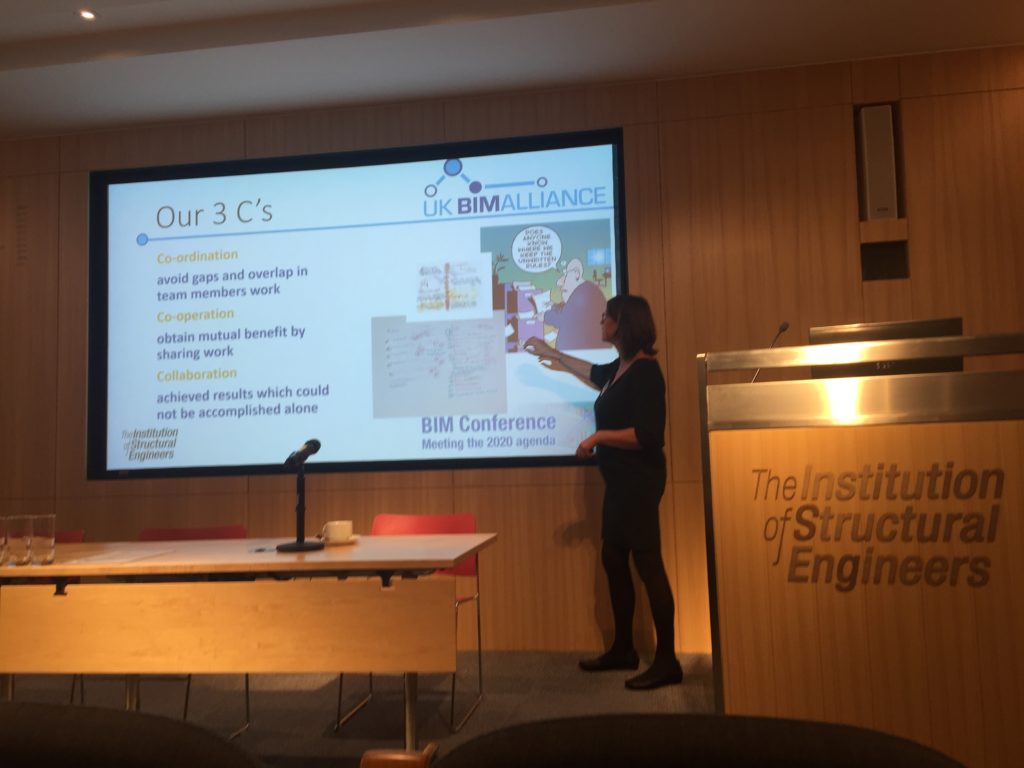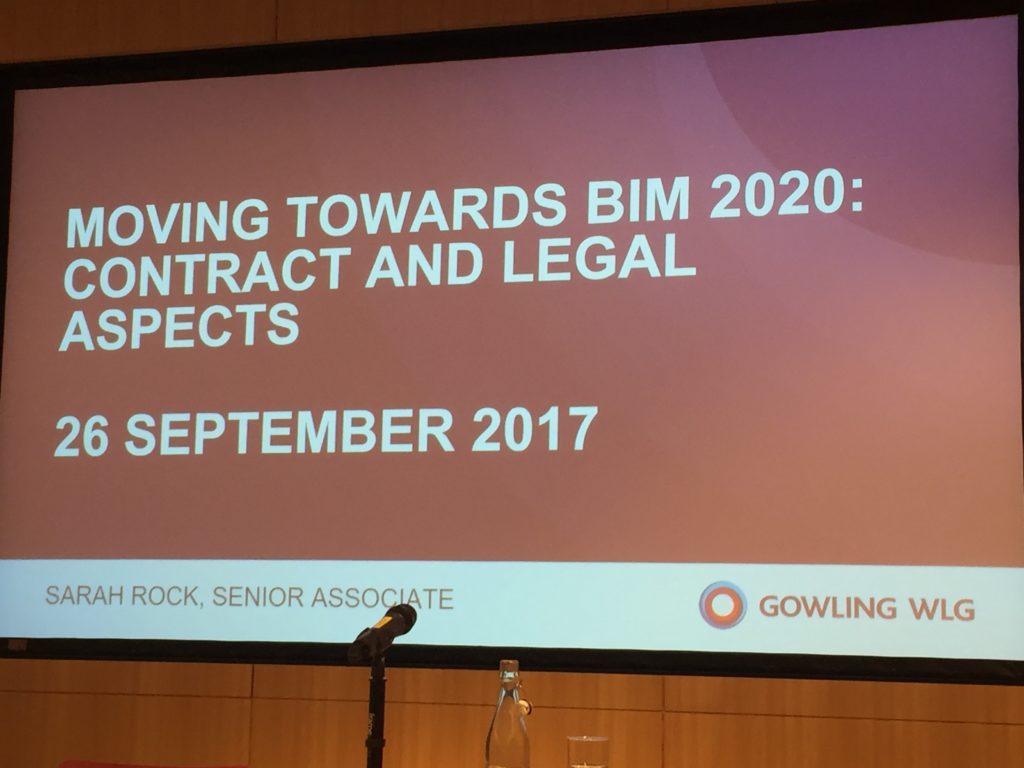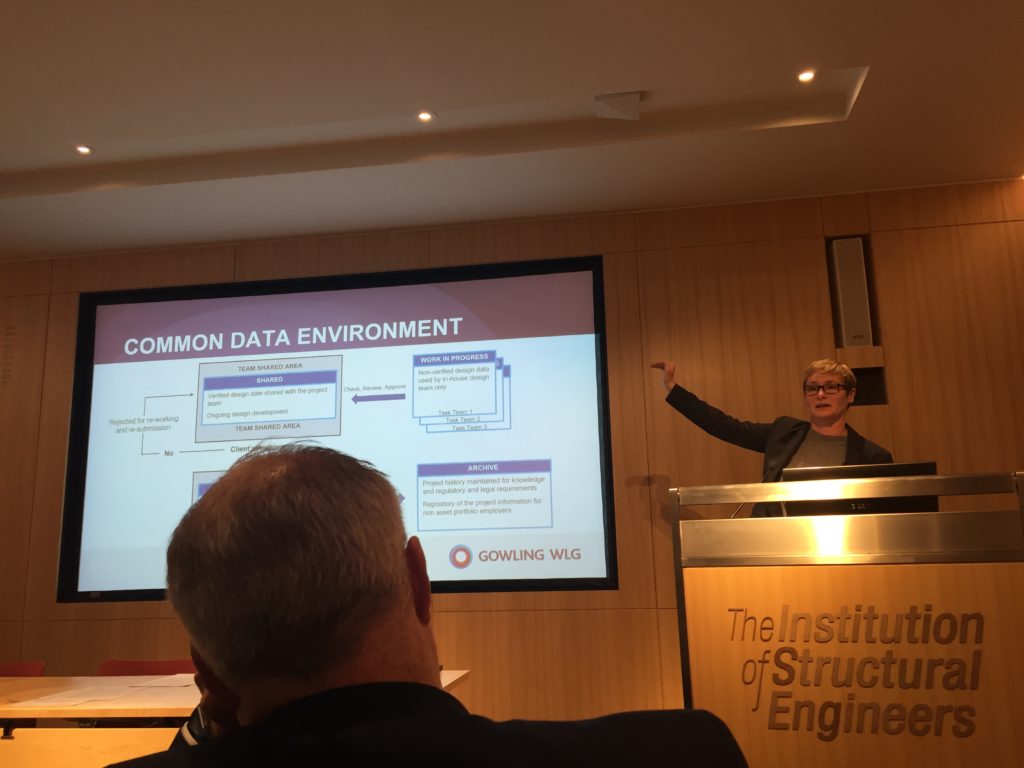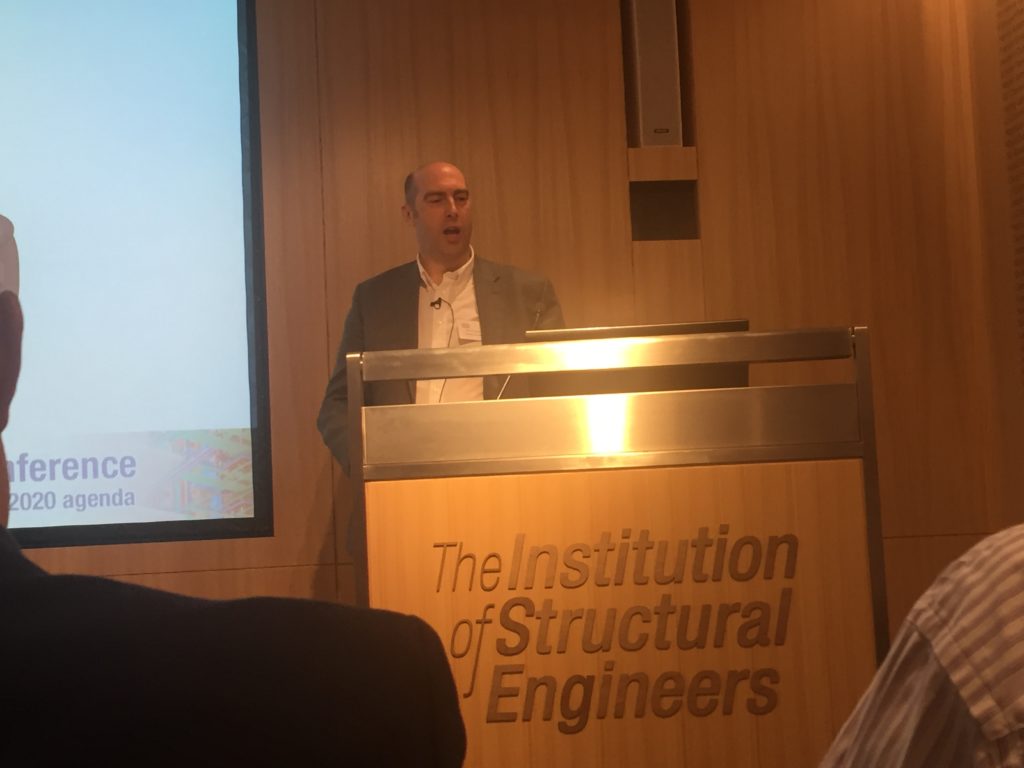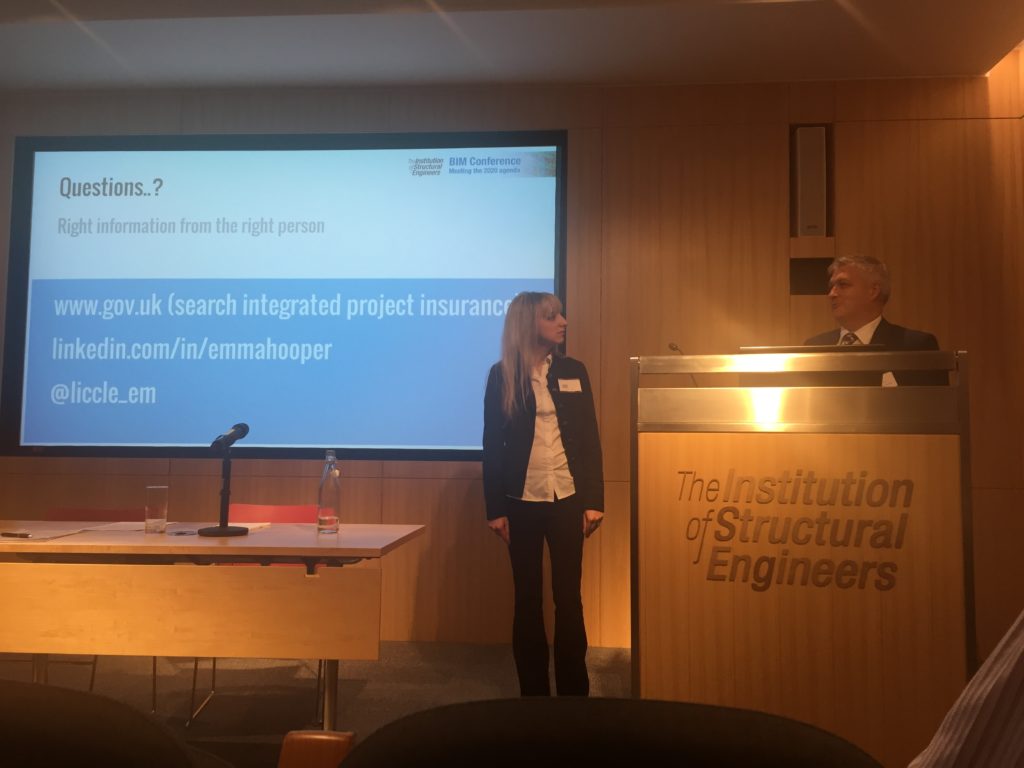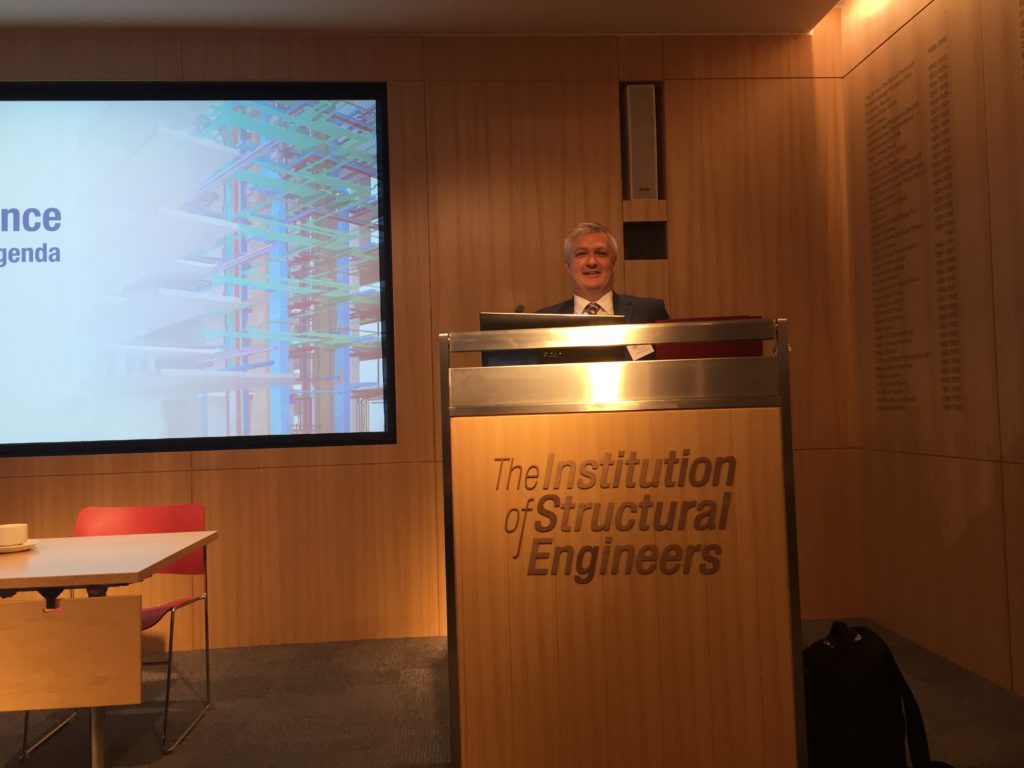Members of the Institution of Structural Engineers gathered in London last week for the Institution of Structural Engineers 2017 BIM Conference, “Moving towards BIM 2020 – Business as usual”.
Institution of Structural Engineers Headquarters, Bastwick Street, London
Delegates were welcomed by John Staves, Managing Director at Michael Aubrey Partnership. John talked about his passion for BIM and how as an industry we need to embrace these changes if we are going to continue to grow and meet the needs of our clients.
Our first speaker of the day was Dr Anne Kemp, chair of the UK BIM Alliance and Atkins Director responsible for BIM Strategy and Implementation across the UK.
Anne talked about the UK BIM Alliance and the 3 “C’s”
- Co-ordination
- Co-operation
- Collaboration
and how BIM supports what we already do – it’s about the management of the data. Together with other industries we need to mix up our ideas. At the moment we are struggling to truly collaborate.
Next up was Sarah Rock, Associate at Gowling. Sarah has written extensively on BIM for various publications including the Construction Manager BIM Handbook and is a well regarded speaker on the legal aspects of BIM.
There is very little case law around BIM, but Sarah highlighted a recent case Trant V Mott Macdonald Ltd (MML) where the question of who should host the common data environment was brought into sharp focus.
A considerable amount of reliance is placed upon the party hosting the data, the BIM Operator. The BIM Operator should have a continuing obligation to ensure that the data is available to others, to allow them to progress the project. This obligation should survive suspension and termination of their employment.
To read more about this case and judgement, click here http://bit.ly/2hGt5m
Sarah stressed the need for BIM practitioners to “talk” to the legal profession and to get in touch via the UK BIM Alliance.
Next up was Nigel Stroud, Geometry Information Manager at Heathrow Airport.
Nigel is currently part of a company wide Asset Information team leading Heathrow’s asset information strategy
Nigel talked about the enormous task of collating all the information at Heathrow and attaching this information to each asset.
At Heathrow they have a “Gateway Delivery Process” where Employer requirements won’t allow you to proceed until the next stage until it has been signed off. This ensures that everyone is clear what is required at each stage.
Graeme Forbes from Clearbox was next on stage. Graeme asked the question; are we doing BIM for the right reasons? Simplicity must dominate. As a business what is motivating you to change – is it compliance or are you trying to save time and money or both? Leadership is key and the right technology to deliver your project is critical.
After a quick break for tea and coffee, up next was Martin Simpson, Professor at the University of Liverpool. Martin is passionate about the digital transformation of the built environment and at Liverpool University he has set up a group to support the construction industry in its digital transformation journey “The Centre for the Digital Built Environment”
Marzia provides a comprehensive review of the ‘LOD’ term and its many nuances from across the world.
Last up was Emma Hooper, Independent Digital Information Specialistl.
Emma talked about her inspiration reading the Latham and Egan reports and how so little has moved forward since then.
A fear of liability has taken over, it’s become a game of blame.
Emma talked about how the procurement models we use are out of date for the new digital age. BIM promotes collaborative and efficient working, yet the way we procure our projects promotes siloed working and individual agenda plagued by inefficiency and a culture of blame.
Integrated project insurance (IPI)
Integrated project insurance (IPI) was one of the new methods of procurement put forward in the 2011 Construction Strategy. Described as an industry disruptor it will change the way we all work from client to subcontractor. One project bank account, one insurance, one team, removing the issues associated with liability and blame which suffocates the industry.
The fact is BIM cannot change the industry alone. IPI complements BIM methodology, and is an example of what is needed to change the industry – Dudley College Advance2, the world’s first IPI project, demonstrates how this can work.
Conclusion
John finished the day by thanking all the presenters and summing up the presentations.
John said “Now that the industry is getting to grips with model authoring, this day has provided a great overview of the commercial concerns and pointed to a range of possible solutions for us all to take away and update our approach to construction projects in a collaborative BIM environment”.
How are you dealing with these BIM challenges in your business? We’d love to collaborate with you! Give us a call on 0118 962 9666.


